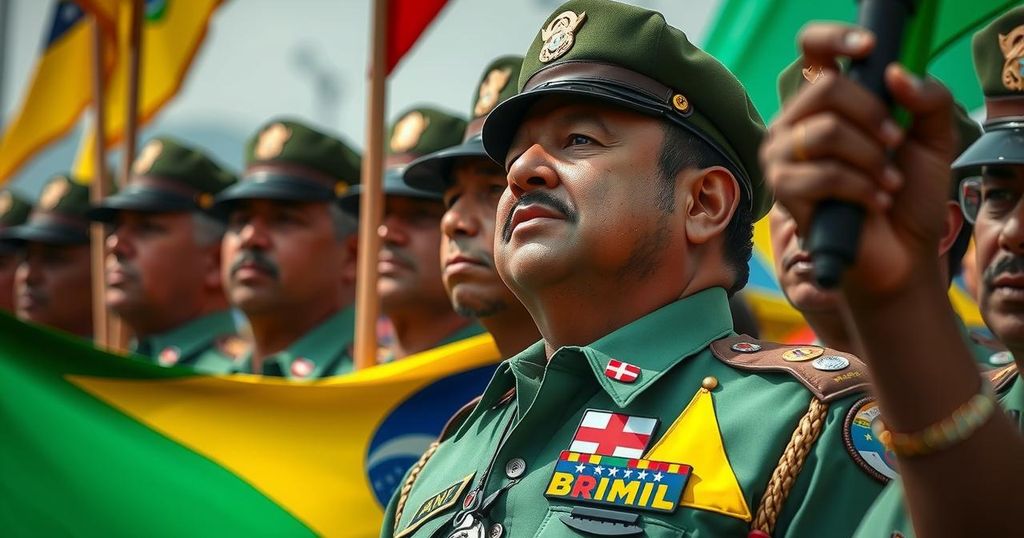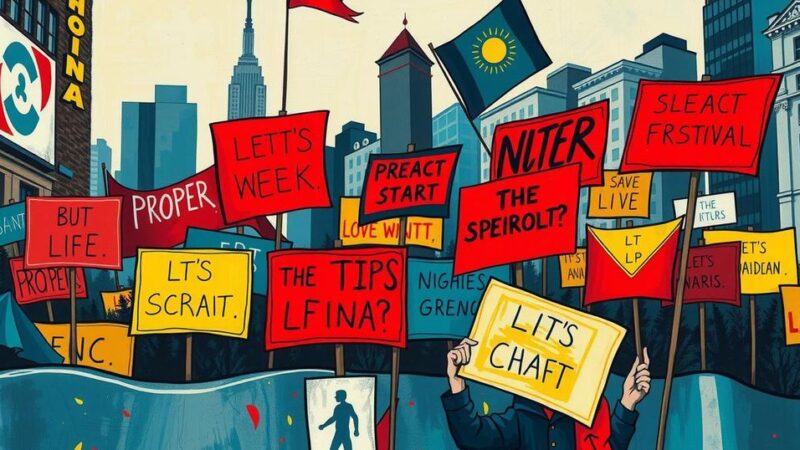On the second anniversary of the coup attempt in Brazil, President Lula da Silva faced criticism for aligning with military leaders amidst growing concerns of political repression and nationalistic rhetoric. The Workers Party’s event drew attention to the complexities of addressing Brazil’s socio-political tensions, particularly in light of Donald Trump’s return to U.S. leadership and the potential resurgence of fascism in Brazil. Lula’s remarks on democracy and revolutions convey deep contradictions, raising questions about the future of working-class representation in Brazilian politics.
On January 8, 2025, Brazil commemorated the second anniversary of the coup attempt instigated by former president Jair Bolsonaro and a faction of the military. Since that event, disturbing details have emerged about the extensive involvement of military personnel in this dictatorial conspiracy. In response, the Workers Party (PT) organized a ceremony that has drawn criticism for being increasingly reactionary and politically cowardly compared to previous commemorations.
President Lula da Silva welcomed the three commanders of the Armed Forces at the event, emphasizing the potential to reshape the military to protect national sovereignty. However, many view this overture as a deceptive attempt to mask Brazil’s social disparities under the guise of national unity—a slogan historically linked to the military dictatorship
of the 1960s and 70s that brutally oppressed dissenting voices. Lula’s alignment with the military raises concerns regarding his strategy to address Brazil’s ongoing political crisis. This partnership starkly contrasts with evidence substantiating the military’s collusion with Bolsonaro to undermine the democratic government.
The political address included remarks from Alexandre de Moraes, head of the Supreme Court, who inaccurately assigned the blame for the coup attempt to unfettered free speech online, signaling intentions to impose increased censorship. Lula’s comments further illuminated his position, where he differentiated between bourgeois democracy and social revolutions, asserting that true governance cannot exist beyond traditional democratic structures.
Lula provocatively criticized the legacy of the Russian Revolution, claiming it lacked true worker representation and focusing instead on individual success stories within a democratic framework. In doing so, he inadvertently revealed the constraints of his narrative, given that he could not attribute any meaningful gains to the Brazilian working class beyond his own political ascension. This disconnect was illustrated by the minimal attendance of the event, primarily limited to the state bureaucracy.
While Lula’s denouncement of the Russian Revolution is contested, it is crucial to recognize its factual basis rooted in worker revolution leading to the establishment of a workers’ state, unlike the bureaucratically led Cuban Revolution. When advocating for democracy, Lula’s reference primarily pertains to the existing electoral framework, which continues to uphold capitalist interests amidst escalating scrutiny on his government from the very financial institutions that facilitated his return to power.
The significant social, economic, and political contradictions in Brazil continue to crystallize twelve months post-anniversary. The geopolitical dynamics, particularly with Donald Trump’s return to the U.S. presidency—an ally to Bolsonaro—exacerbate these tensions further. Bolsonaro’s recent call for an invitation to Trump’s inauguration underscores the provocative stance that could compound internal challenges for Lula’s administration, regardless of how it is addressed.
In essence, Lula’s attempts to curry favor with the military and appeal to nationalism detract from actively confronting the realities of U.S. imperialism and burgeoning fascism. Without clear resistance strategies, there remains the unsettling prospect of future coup attempts, necessitating a renewal of efforts to shift political power toward the working class and embrace the principles of international socialist revolution, as exemplified by the historical precedent set by the October Revolution in Russia.
The context surrounding the commemorative event for the attempted coup in Brazil involves critical revelations about the extent of military involvement in a conspiracy to overthrow the elected democratic government under President Lula. Since January 8, 2023, when Bolsonaro led an insurrection, discussions have emerged regarding the military’s complicity and the implications of Lula’s efforts to align with military commanders. The Workers Party, of which Lula is a member, faces internal and external pressures from both the financial elite and right-wing factions, reflecting deeper social and political fissures within Brazilian society. The period following the coup attempt has seen a rise in political polarization, emphasizing the necessity for strategic action against the resurgence of fascist ideologies.
To conclude, the second anniversary of Brazil’s coup attempt highlights the precarious balance of political power and the stark realities facing the Workers Party under Lula’s leadership. Attempts to placate the military are met with skepticism, revealing significant disillusionment among the working class regarding concrete achievements beyond Lula’s election. The backdrop of international political dynamics, particularly tied to U.S. interests and the resurgence of right-wing populism, underscores the urgency for a reexamination of alliances and strategies by those committed to genuine democratic engagement and labor empowerment in Brazil. Countering the threats posed by imperialism and looming fascism calls for a concerted endeavor towards reinstating the political power within the hands of the working masses.
Original Source: www.wsws.org






